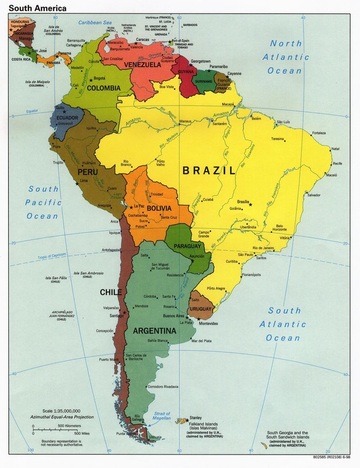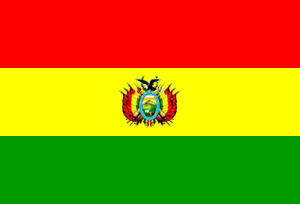About Bolivia

Bolivia—officially The Plurinational State of Bolivia—is located in central South America and has an estimated population of just over 11,000,000. This landlocked country shares its borders with Brazil, Paraguay, Argentina, Chile, and Peru. The administrative capital, where the executive and legislative branches of government function, is located in La Paz; however, the constitutional capital is considered the city of Sucre.
More than 80% of the population of Bolivia speaks Spanish as a first or second language, followed by Quechua: 21.2%, Aymara: 14.6%, and other indigenous languages: 3.6%. In fact, Bolivia’s 2009 constitution recognizes a total of 37 languages as official. This diversity in language is telling of Bolivian ethnicity itself as approximately 60% of citizens are indigenous peoples.
Mining is the major industry within Bolivia. The country currently has the second largest natural gas reserves in South America and is also a major producer of petroleum gas. Additionally, Bolivia easily holds the largest reserve of lithium in the world, an essential product in batteries for cellphones, laptops, and electric cars - although it is not currently being extracted. If managed well, these resources could reshape the country's struggling economy for decades to come.
More than 80% of the population of Bolivia speaks Spanish as a first or second language, followed by Quechua: 21.2%, Aymara: 14.6%, and other indigenous languages: 3.6%. In fact, Bolivia’s 2009 constitution recognizes a total of 37 languages as official. This diversity in language is telling of Bolivian ethnicity itself as approximately 60% of citizens are indigenous peoples.
Mining is the major industry within Bolivia. The country currently has the second largest natural gas reserves in South America and is also a major producer of petroleum gas. Additionally, Bolivia easily holds the largest reserve of lithium in the world, an essential product in batteries for cellphones, laptops, and electric cars - although it is not currently being extracted. If managed well, these resources could reshape the country's struggling economy for decades to come.

Bolivia is a unitary presidential republic with its power divided into three branches: executive, legislative, and judicial. Luis Arce is the current president of Bolivia, first elected in 2020. He was preceded by interim president Jeanine Áñez (2019) and Evo Morales who served from 2006 to 2019 with the same Movement Towards Socialism (MAS) party.
CBM first began working in Bolivia in 1898. Early impacts in Bolivia include influence on the passing of a bill for religious freedom in 1905, promoting a model for land reform and the end
CBM first began working in Bolivia in 1898. Early impacts in Bolivia include influence on the passing of a bill for religious freedom in 1905, promoting a model for land reform and the end
of serfdom, defense of aboriginal peoples’ rights, and the establishment of schools, churches, medical clinics as well as a theological seminary. CBM was among the first NGOs to handover properties and leadership positions to the national church in Bolivia. This proved to be a groundbreaking practice that later opened the doors for CBM to establish other significant partnerships and shape the framework for its present engagement.
